5 Herbs That Will Calm Your Anxiety
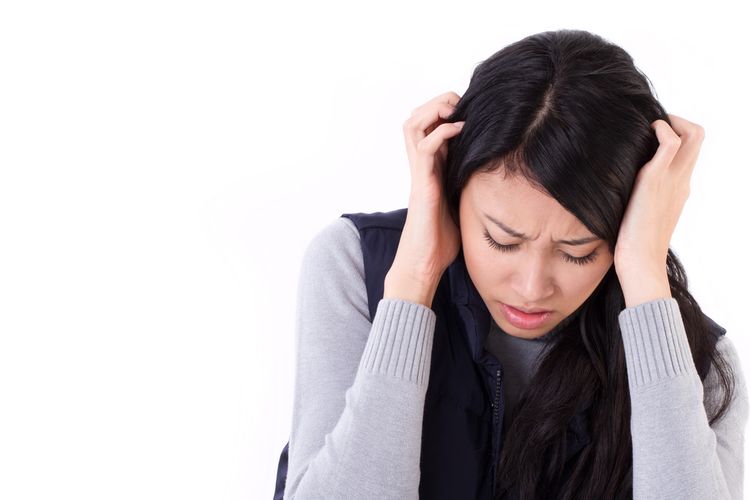
If you’ve taken a moment to glance around our modern world, you know firsthand just how anxiety-ridden our culture has become.
Many (see: most) aspects of it induce stress and cause anxiety, and trying to dodge the feeling of overwhelm can in and of itself be overwhelming.
The evening news is enough to make most people want to apply for stress leave. From traffic to financial pressure and losing loved ones, life can sometimes feel impossible.
If you’re looking to reduce anxiety, first you may need to reframe the way you relate to stress.
Stress and anxiety are intimately linked. Stress is external. It can range in severity from getting rear-ended in the grocery store parking lot, to being diagnosed with a grave illness.
Anxiety is an internal reaction to these stressors. It’s the feeling of panic in the pit of your stomach when a stressful situation occurs, or in anticipation of a given stressor.
You may have heard that stress is bad for your health. If you’ve been to the doctor recently, decreasing your stress levels was likely a part of your prescription.
However, emerging research is beginning to uncover that stress itself might not be inherently bad, but rather how we react in situations that we perceive as stressful, that determines its effects on our health. Some research indicates that certain types of stress, termed eustress, may even be good for us.1
As you’re looking to rid yourself of anxiety, there’s no doubt that weeding out certain components of your life can be beneficial. It’s important to constantly check in with yourself on relationships, jobs and living situations that may be causing more distress than they’re worth.
It’s equally important to realize, however, that a large number of stressful situations are inevitable. Death, taxes and everything that falls somewhere in between can’t be entirely avoided.
The truth is, we can’t run and hide from all of the stressful stimuli of life. Rather than trying to obsessively control your environment, a more effective approach may be to reconstruct your response and build up your resilience.
When we constantly allow stress to turn into anxiety, it’s like flipping your health and vitality switches to the off position. By learning effective ways to cope with stress and reduce anxious reactions, we’re improving our lives despite what are ultimately crummy external situations. In essence, we’re strengthening our ability to turn our life switches back on.
When it comes to battling anxiety, it takes more than just taking up yoga or going on a two week vacation. It takes building a serious arsenal of habits, tricks and tools that dissolve feelings of anxiety in its tracks.
If you suffer from mild to moderate anxiety, here are some herbs you’ll want to keep in your toolbox. For some, any one of these can be game-changers.
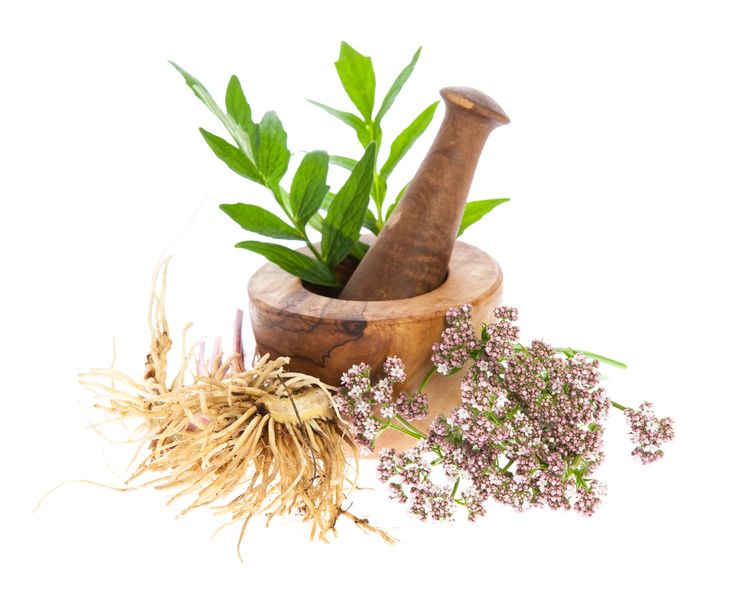
#1 – Valerian Root
Valerian is one of the most popular herbs used by modern herbalists to remedy anxiety and insomnia. For those who suffer from the inability to turn off mind-chatter, this may be the herb for you.
Neurological research has determined the active compound in Valerian, called valerenic acid, interacts with the GABA receptors in our brain. GABA is a neurotransmitter that is responsible for calming the nervous system and plays a key role in the reduction of anxiety.
In rat studies it was able to significantly reduce anxious behavior and found to have a similar mechanism of action as Benzodiazepines, a class of pharmaceuticals commonly prescribed for anxiety.2
Valerian was also shown to significantly improve symptoms of Obsessive Compulsive Disorder with little to no side effects.3
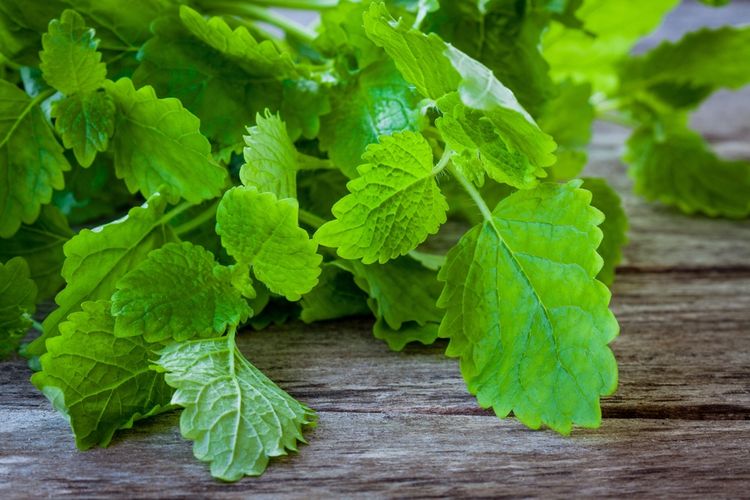
#2 – Lemon Balm
A quick whiff of this citrusy-sweet herb is enough to bring you to a relaxed and pleasant head space. Another extremely popular herb, Lemon Balm is often used as Valerian’s sidekick to combat symptoms of anxiety.
It has been proven safe and effective with children who suffer from restlessness along with adults with Generalized Anxiety Disorder.4,5
Like Valerian, it also interacts with the GABA pathway by inhibiting the enzyme that breaks down this calming neurotransmitter.6
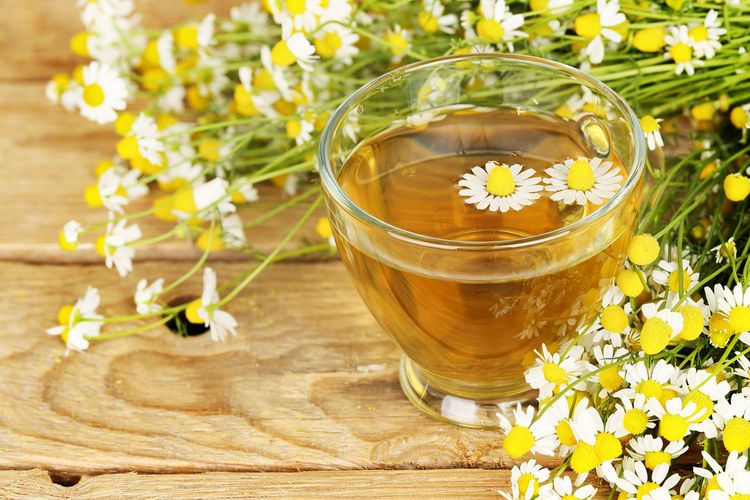
#3 – Chamomile
Chamomile has been used for centuries across the globe as a safe and effective nerve tonic. The warm, sweet flavor begs you to stop what you’re doing and chill out. Studies confirm its ability to calm the nervous system and reduce anxiety.7,8
Two potent flavanoids, apigenin and chrysin, may be responsible for chamomile’s soothing nature. Apigenin causes muscular relaxation, while chrysin may act similarly as both Valerian and Lemon Balm on the GABA pathway.9
Try different combinations of Valerian, Chamomile and Lemon Balm to effectively strengthen your nervous system.
These herbs are extremely safe, even for use with children. Don’t be afraid to incorporate them into your everyday routine.
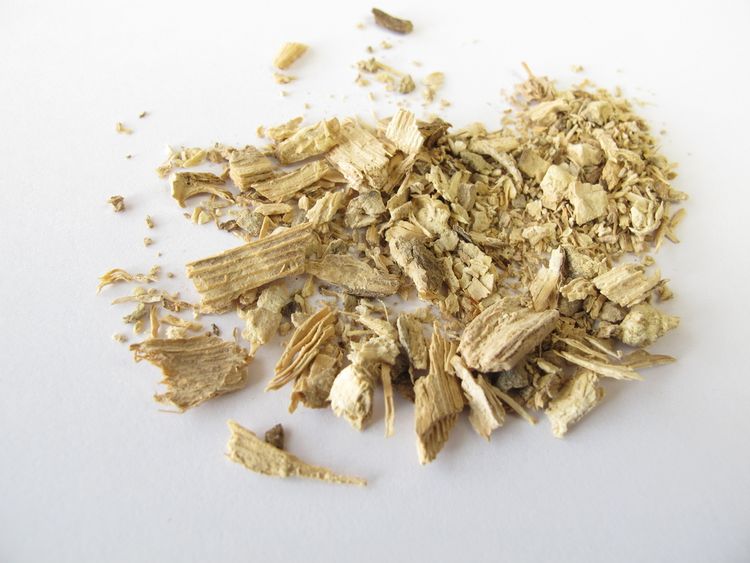
#4 – Kava Kava
Sometimes you need to bring out the big guns and, when you do, there’s nothing better than Kava Kava.
This herb comes from the root of a pepper plant found in the South Pacific and has a long history of use with people native to the region. It has a strong sedative effect but is also said to simultaneously sharpen the mind, while easing tension and reducing anxiety.10,11
When taking this herb, start slow and make sure you understand how it affects you.
There is some evidence that Kava Kava is toxic to the liver. However, this may be due to toxic mold contamination rather than the nature of the plant itself.12 At least one study found no negative effects.13
Regardless, proceed with caution when taking this herb and make sure to get it from a high quality, reliable source. Always consult a medical doctor if you have health concerns.
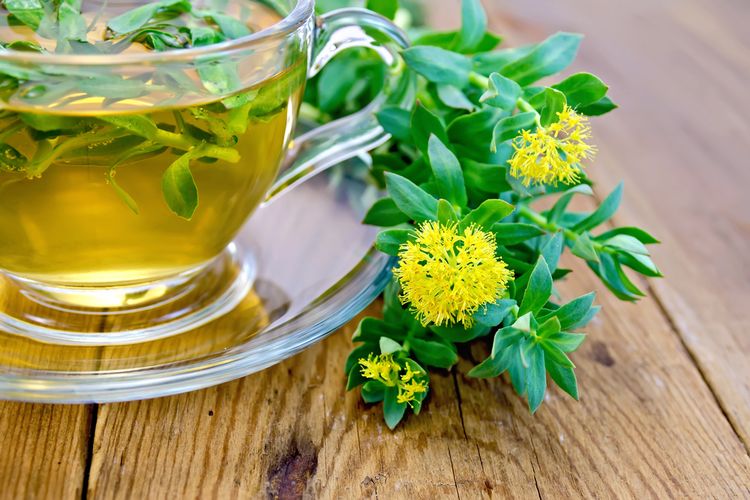
#5 – Rhodiola Rosea
This powerful herb has a long history of use in Scandinavian and Russian traditional medicine. Rhodiola is considered an adaptogen, meaning it adapts to the unique needs of each individual.14
It’s been shown to be neuro-protective, cardio-protective, anti-fatigue, anti-depressive, along with its ability to increase life-span, reduce anxiety and benefit the central nervous system.15,16
Think of it as a multi-purpose pocket tool for your health. You might not know what exactly you’ll need it for, but it’ll always come in handy when you do.
One way Rhodiola might be effective specifically against anxiety, is in its ability to reduce cortisol.17
Cortisol is the hormone that is responsible for kicking us into fight or flight. In our modern world, situations we perceive as stressful induce a cortisol response.
When we allow stress to turn into anxiety, our cortisol becomes perpetually elevated, which causes a host of symptoms that negatively impact our health.
By enabling us to bring cortisol down, Rhodiola may help us to physiologically switch back into calm-cool-collected mode.

Keep in Mind
Remember, these plants aren’t quick fixes and sometimes their effects are subtle.
Always look for high quality sources for herbal supplements. Mountain Rose Herbs is a great company to work with.
If you’re taking medication, make sure to consult with your doctor before you begin implementing herbs into your routine. While most of these herbs are extremely safe, there are pharmaceutical drugs that haven’t been tested for herbal contraindications.
Never go off of a prescribed pharmaceutical without the approval of your doctor. Keep in mind that not all doctors will be familiar with herbal solutions. It can be extremely beneficial to seek out a physician who is open to the possibilities of herbal and nutritional supplementation.
Remember, this is your journey and you’re the one behind the wheel! Work with practitioners who are willing to accommodate your specific health goals and needs.
